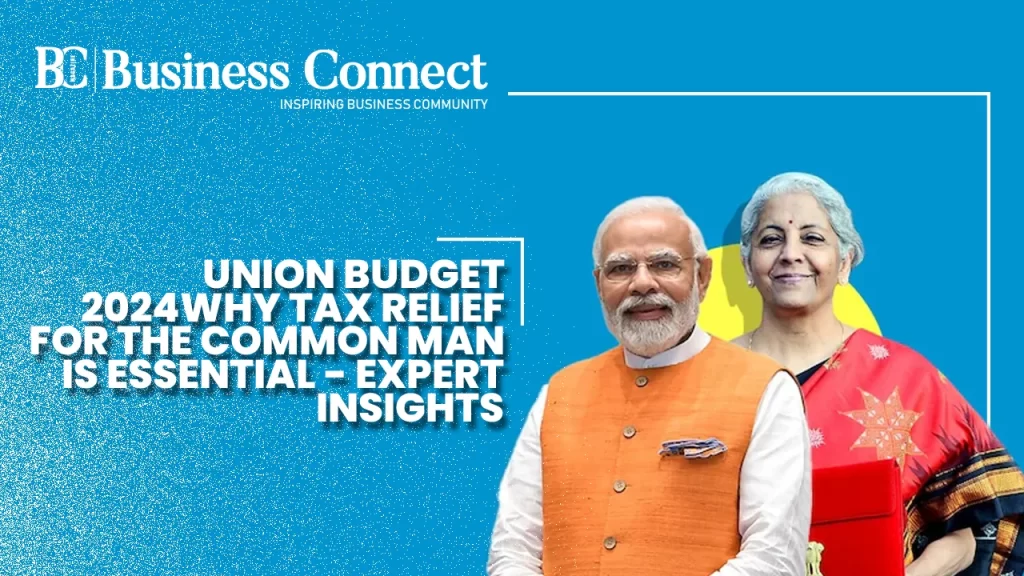Union Budget 2024: Why Tax Relief for the Common Man is Essential – Expert Insights
Experts suggest that the Union Budget 2024, the first under Modi 3.0, may prioritize tax cuts for lower-income individuals over traditional welfare programs. This strategy aims to increase disposable incomes, boost consumer spending, and stimulate broader economic growth.
Union Budget Tax Expectations: Every year before the Union Budget presentation, India’s middle class eagerly anticipates a reduction in income tax rates and an increase in disposable income. However, not all budgets have provided relief to taxpayers, especially the aam aadmi. Even the Interim Budget earlier this year, ahead of the Lok Sabha elections, offered minimal direct tax benefits to the common man.
As Budget 2024 approaches, taxpayers are eagerly awaiting updates on exemptions and deductions. The current government’s focus on the new tax structure with reduced exemptions and deductions has led individuals to reassess their expectations for potential changes in the upcoming budget.
Neeraj Agarwala, Director at Nangia Andersen, stated: “When examining income tax statistics from AY 22-23 to AY 18-19, it is evident that individuals with incomes between Rs 5.5 lakh and Rs 15 lakh file the most income tax returns and bear approximately 18% of the average income tax liability. This middle-class segment pays taxes at a top slab rate ranging from 20.8% to 31.2%. Despite this, deductions on income from salary are limited to a standard Rs 50,000, and deductions on house interest for self-owned property are capped at only Rs 2 lakh per annum.
Additionally, the exemption of only Rs 1 lakh on long-term capital gains from the sale of equity shares discourages their participation in the growing economy. Providing tax relief to this income bracket may impact revenue collection, but it is crucial to offer tax deductions that reflect contemporary financial needs and provide financial respite to homeowners.
According to the latest data from the Income Tax department, India’s net direct tax collection has shown a significant growth of 19.54 percent, reaching a total of Rs 5.74 lakh crore as of July 11, 2024. Personal income tax collections have surged by nearly 23%, amounting to Rs 3,61,862 crore by the same date, compared to Rs 2,94,764 crore during the corresponding period in the previous fiscal year 2023-24. This growth trend suggests a positive trajectory in tax collections with potential for further expansion.
Furthermore, India’s fiscal deficit for April-May has been reported to be around 3% of the annual target for FY25, amounting to Rs 50,615 crore. Notably, this increase in revenue can be attributed to a significant Rs 2.1 lakh crore transfer made by the Reserve Bank of India (RBI) in May.
The substantial transfer from the RBI has bolstered the fiscal position of the government, providing additional fiscal stability and room for further financial maneuvers.
During the interim budget announced on February 1, 2024, the finance ministry projected that income tax collections would rise to Rs 11,56,000 crore in the fiscal year 2024-25, reflecting a 13% increase. Additionally, the revised estimate for the fiscal year 2023-24 stands at Rs 9,00,575 crore, indicating a 13.5% increment compared to the initially budgeted amount.
What the Middle-Class Wants:
- Increase in Standard Deduction: The forthcoming revisions in tax regulations are expected to significantly increase the standard deduction, providing much-needed relief to individuals in the middle-income bracket.
- Potential Restructuring of Tax Slabs: A probable overhaul of the existing income tax slabs is anticipated, aiming to establish a more equitable and balanced tax system for the middle-income demographic.
- Guaranteed Pension Benefits Under the NPS Regime: The upcoming budget is expected to introduce measures to safeguard and assure a stable pension plan for participants enrolled in the National Pension System (NPS), fostering financial security for retirees.
- Incentives in the New Tax Regime: Additional enticements are likely to be integrated into the revised tax framework to heighten its attractiveness and foster compliance among taxpayers, fostering a more streamlined tax environment.
- Support for Middle-Class Homebuyers: Various schemes designed to simplify the process of homeownership for the middle class are predicted to receive a substantial boost, aiming to enhance affordable housing opportunities for this segment of the community.



